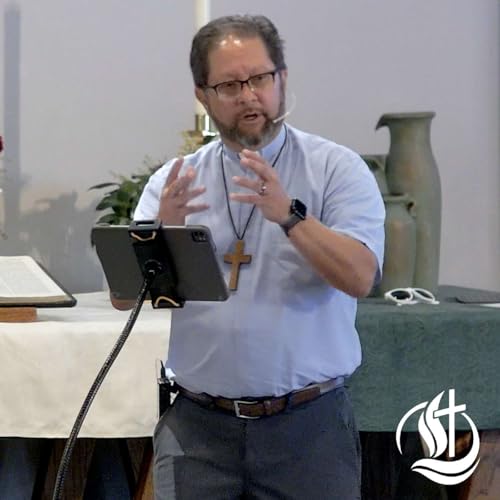
Love Boldly: The Methodist Vision for a Divided World
No se pudo agregar al carrito
Add to Cart failed.
Error al Agregar a Lista de Deseos.
Error al eliminar de la lista de deseos.
Error al añadir a tu biblioteca
Error al seguir el podcast
Error al dejar de seguir el podcast
-
Narrado por:
-
De:
Send us a text
What does it mean to "love boldly" in a society fractured by political division and violence? At a pivotal moment in American culture, this exploration of Jesus's greatest commandment couldn't be more timely or necessary.
The United Methodist Church has embraced a powerful new guiding vision centered on loving boldly, serving joyfully, and leading courageously. This sermon unpacks the first principle by examining Jesus's famous conversation with the Pharisees about the greatest commandment. His answer—love God with all your heart and love your neighbor as yourself—has been recognized as the cornerstone of faith by Jewish and Christian thinkers for two millennia. Yet we struggle tremendously to put this teaching into practice.
When current events force us to confront painful questions about who counts as our "neighbor" and what our love should look like in practice, we often retreat to safer, more comfortable alternatives. Rather than letting love lead, we defer to power, money, division, fear, or anger. But these approaches have consistently failed to bring justice, peace, or harmony to our communities.
Perhaps Jesus wasn't offering a naive platitude but the only practical solution for human beings to live together despite our differences. The challenge for people of faith today is whether we're ready to truly believe Jesus—to trust that his commandment to love God and neighbor is the viable path forward. This requires holding ourselves accountable first, ensuring our words and actions honor the humanity of all people, even those with whom we deeply disagree.
Join us as we wrestle with what it means to love boldly in today's world. How might our communities transform if we had the courage to place love at the center of our interactions with others? What would change if we truly believed what Jesus taught about love?
Support the show



